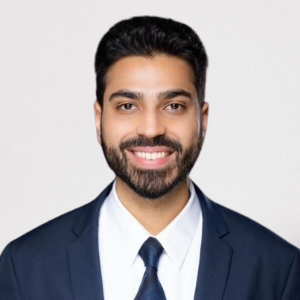Title : Safety and early results for off-label use of intranasal calcitonin for treatment of non-displaced acromial and scapular spine stress fractures after reverse total shoulder arthroplasty
Abstract:
Background
Immobilization for acromial and scapular spine stress fractures (AF/SSF) post-RSA is associated with patient dissatisfaction. Our study reports the effects and safety of intranasal calcitonin alongside sling immobilization on pain and function in treatment of AF/SSF post-RSA.
Methods
Treatment was regimented calcitonin (salmon) 200 unit/actuation nasal spray (1 spray/day) for 6 weeks, with sling immobilization for 4 weeks. Each patient was monitored through bloodwork. Visual analogue scale (VAS), American Shoulder and Elbow Surgeons (ASES) score, and active range of motion (AROM) were collected preoperatively, postoperatively, at presentation of AF/SSF, and following completion of calcitonin treatment.
Results
282 RSAs were performed by two board-certified orthopaedic surgeons, of which 18 patients sustained AF/SSF (6.4%). Ten patients met inclusion criteria (nine AFs and one SSF). Following calcitonin treatment, patients demonstrated average improvement of VAS= 5.8 points, AROM= 46 degrees, and ASES= 43.6 points at average 7.53 months post-RSA. No reported medical complications at 6-month follow-up post-calcitonin treatment.
Conclusions
The use of intranasal calcitonin was not associated with adverse events including no aberrations/signs of cancer at 6-month follow-up post-administration. Calcitonin with sling immobilization significantly improved clinical and functional outcomes of patients with non-displaced AF/SSF, and may be considered by orthopaedists for symptom management.
Level of Evidence: IV, case series
Keywords: Reverse shoulder arthroplasty, acromial stress fracture, scapular spine stress fracture, intranasal calcitonin, patient reported outcome measures, shoulder surgery
What will the audience learn from your presentation?
This study is aimed at presenting a novel, off-label treatment for acromial and scapular spine stress fractures, particularly following reverse total shoulder arthroplasty. Intranasal calcitonin has been studied previously for its use in osteoporotic fractures and its role in bone mineral density, however, its use has become scrutinized given controversial citing of its association with a diagnosis of cancer. To that matter, we present a case series of 10 patients to introduce and discuss the safety and efficacy of intranasal calcitonin as an adjunct treatment to current non-operative management (sling immobilization).



